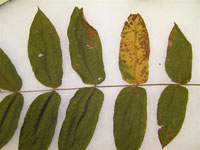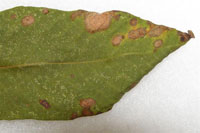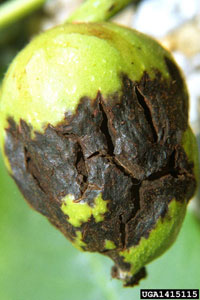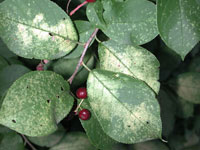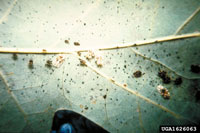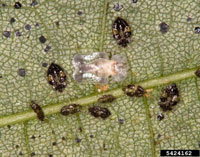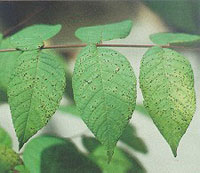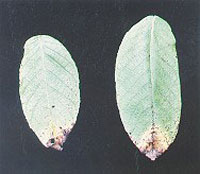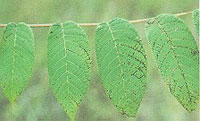Extension > Garden > Diagnose a problem > What's wrong with my plant? > Deciduous Trees > Black Walnut > Leaves discolored white to yellow
Black Walnut > Leaves > Leaves discolored white to yellow
1 of 3
Anthracnose
Gnomonia leptosyla
- Circular brown lesions form on both sides of leaflets
- Lesions are smaller than a pencil tip and surrounded by a yellow area
- Infected leaves turn yellow, then brown on the margins, and eventually fall off
- Smaller but similar spots form on nut husks, interfering with nut development and causing premature drop
- More information on Walnut Anthracnose
2 of 3
Walnut lacebug
Corythucha juglandis
- Feeds on undersides of leaves with needle-like mouthparts causing white or yellow speckled or pinprick discolorations on leaf surface
- Black dots or specks (droppings) are on the underside of leaves
- Heavy feeding can cause severe discoloration and leaf drop
- Lace bugs are 1/8 to 1/4 inch long; light colored bodies; intricate, lacy wings
- Damage is most noticeable in mid to late summer
- More information on Walnut lace bug
3 of 3
Leaf spot
Mycosphaerella juglandis
- Small black spots scattered across leaf
- Dark brown veins and leaf tips are common due to many spots forming on leaf veins and leaf tips
- As the disease progresses, leaves yellow and fall off
- In mid-summer leaves appear yellow from a distance
- Occurs on black walnut and butternut
- More information on Leaf spot



